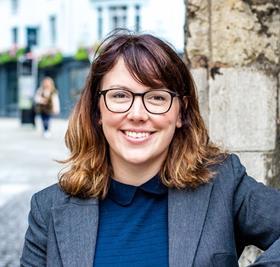Chloe Jay, a criminal defence solicitor and partner at a Winchester-based firm, writes about the precarious balancing act of keeping criminal defence work afloat
How do we keep making this work? This is the question that keeps me up at night when another day of work travelling between court and police stations is done. In the morning, on the drive to the office of my mixed-practice firm, I prepare myself to be met with that same question at the partner’s table.

My career as a criminal defence lawyer has been driven by the need to fight for vulnerable people in the criminal justice system. It is crucial for a fair justice system that everyone – not just those who can afford it - has the right to legal representation at the most critical moments in their lives. Criminal defence lawyers are the only people in the process of arrest and detention who are working to represent their client. It takes an independent perspective on the situation to make sure that individuals are getting the justice they deserve.
In my experience, it has often meant covering brutal 48-hour shifts on duty and constantly being on call for colleagues and clients that ask for me even when I’m not on the rota. The low renumeration, demanding hours and frustrations of dealing with an underfunded and beleaguered criminal justice system can often feel like a thankless uphill battle. Sadly, I’m not alone in this. It is an everyday struggle for duty solicitors across England and Wales, who have been leaving the profession in their droves.
When I joined the rota in 2012, there were 39 duty solicitors in my patch of Hampshire. Today, there are 19. More than half have left the practice in the past ten years. The ones that have stayed on do it partly because we fear for a justice system without defence solicitors and without access to justice for all. It is simply not economically viable work for the majority.
We also see this in recruitment, where hardly any young people are choosing to follow a career in criminal defence work. Most people in their 30s and 40s move into prosecution for better pay and job security. Law Society data reports that the mean average age of duty solicitors is 49, with fewer and fewer younger professionals remaining to move up the chain. In many regions it’s even higher – we are an ageing workforce. One recently qualified lawyer in our team told me that she was laughed at by her lecturer when she told them she wanted to go into criminal defence work.
Now that I’m an employer, the responsibility and burden for me is to make sure we can continue the work sustainably in our firm. We are passionate about what we do, but in such bleak conditions it’s hard to tell what the future of criminal legal aid will be. Subsidising criminal legal aid by looking for more opportunities to take on private work is becoming an increasingly difficult and unsustainable option. Criminal legal aid requires urgent government funding if it’s going to stand a chance of surviving.
The government’s response to Lord Bellamy’s independent review on criminal legal aid was yet another blow to the profession’s morale. We are living through a cost-of-living crisis with legal aid rates that had not been raised for the past 20 years. The government’s refusal to raise criminal legal aid fees by the recommended 15%, even when it was described by Lord Bellamy as the bare minimum needed as a first step, is a clear rebuttal of the issues we continue to raise. Who knows when the next review of legal aid fees will be? I may have to future-proof for the next decade with this already-insufficient amount.
The Law Society of England and Wales has brought a judicial review against the UK government, which was heard in the High Court last week. Duty solicitors are hoping that the government will reconsider the insufficient funding of criminal legal aid once a decision is made on the judicial review brought against them. If they don’t, the question remains – how do we keep making this work?
Chloe Jay is a solicitor advocate and partner at Shentons Solicitors. She has practised in criminal law since 2005, and has been with Shentons since 2012, becoming a partner in 2016. Chloe has overall responsibility for the civil, family and criminal litigation departments































7 Readers' comments